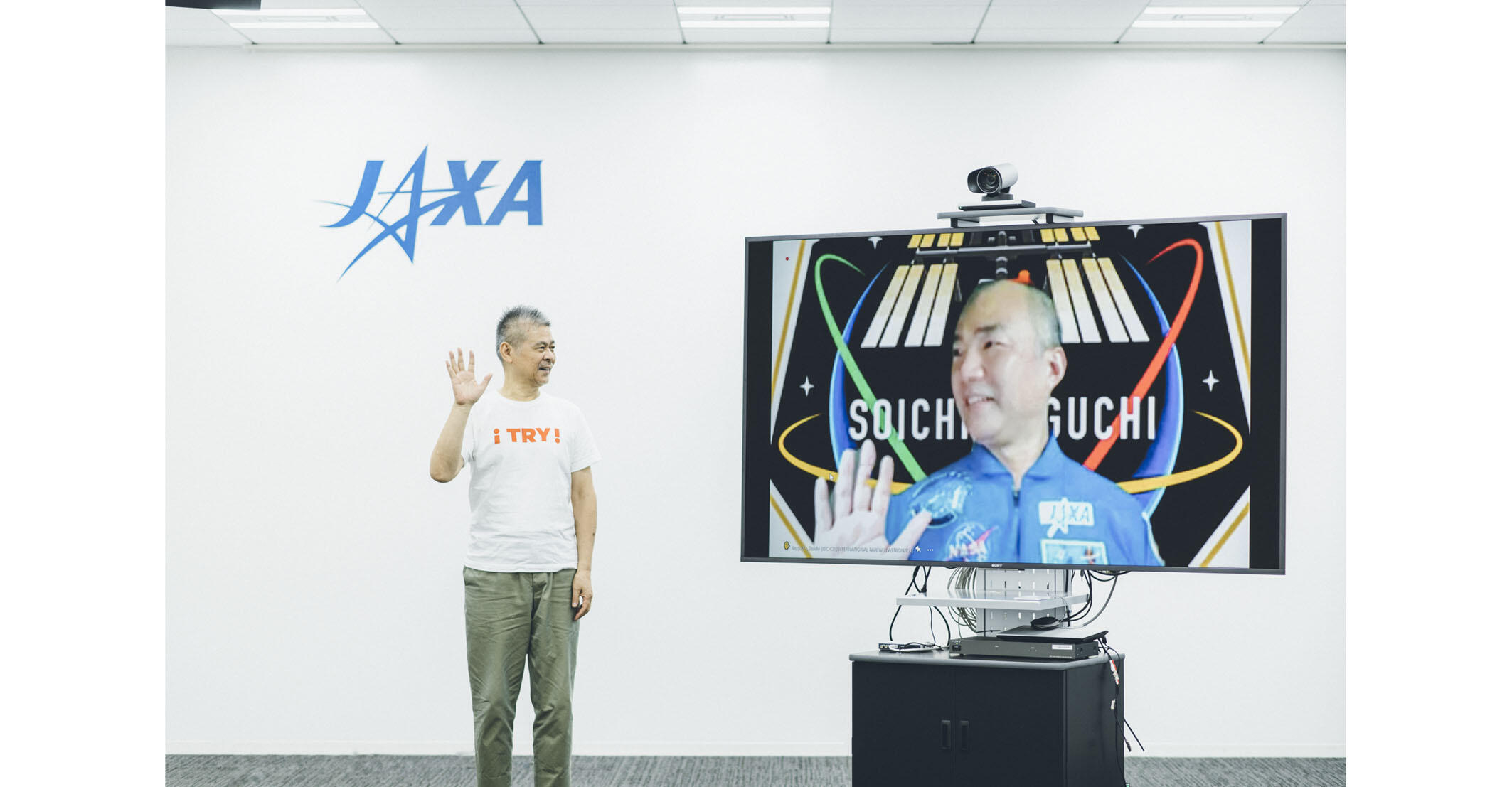
Special Talk: CATCH MY OWN UNIVERSE

CATCH MY OWN UNIVERSE
Astronaut NOGUCHI Soichi will shortly head to the International Space Station (ISS) from NASA's Kennedy Space Center on the Crew Dragon, a new type of spacecraft developed by SpaceX, a US space firm. For humans to travel from Earth into space, we essentially need to tap into science, which is knowledge shared by humankind. At the same time, it is the experience of each individual that sustains the knowledge. Human space flight is a visual embodiment of experience both as humankind and as individuals. ITOI Shigesato has observed the engagements of both individuals and humankind as a copywriter through his creative activities of producing words and contents. An online dialogue between Noguchi and Itoi explores the essence of human flight to space.
Space is an ambivalent world
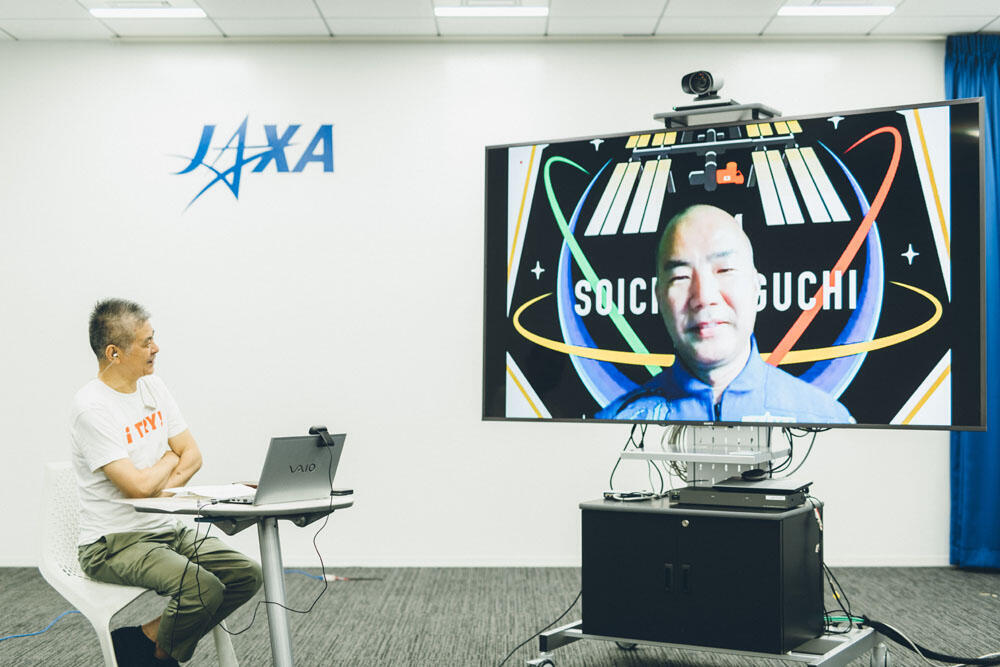
Itoi
For me, space provokes a sense of incomprehensibility in a positive way. The outer space represents everywhere other than where we live, doesn't it? It's this part that I can't quite fathom. When I hear news about the launch of HAYABUSA, the asteroid explorer, I can see that it's heading somewhere faraway, but space is such a vast and infinite place, isn't it? When I imagine the infinity of the universe, I start feeling a little uncomfortable. Being engaged with space at work, do you no longer feel this kind of incredibility?
Noguchi
As you say, the word "space" encompasses a wide range of notions. I believe each individual has their own perception of space. Etymologically, the word "space" indicates a span in both time and space. When people discuss space, they could talk about the Big Bang that occurred 13.8 billion years ago, or focus on business opportunities in space. Astronomers observe the changes in the glittering stars faraway, whereas some artists create their works of art gaining inspiration from space. In other words, each individual deserves to have their own distinctive image of space. And we astronauts only see a small part of vast space, the part of space that surrounds Earth. So, for astronauts, space means where humans can travel against Earth's gravity.
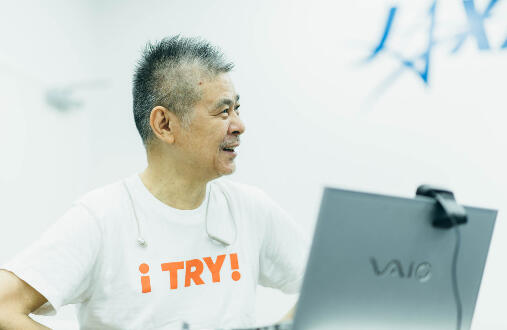
Itoi
Do you feel that space has become your workplace?
Noguchi
I remember vividly when a senior astronaut, Ms. MUKAI Chiaki, once said, "My workplace is space," and I'm in complete agreement with her.
Itoi
Does that mean for an astronaut, going to space feels like going somewhere "faraway on Earth"?
Noguchi
In a way, yes. After 59 years since Yuri Gagarin succeeded in the world's first manned space flight in 1961, I believe we can consider Earth's orbit to be within humans' sphere of life today. As you described space as "somewhere faraway on Earth," space has indeed become a place where humans living on Earth can travel to on a temporary basis. As for the Moon, the first humans succeeded in landing on the Moon under the Apollo Program carried out from 1961 to 1972. So, in the broad sense, the space spanning all the way to the Moon can be described as part of Earth's sphere.
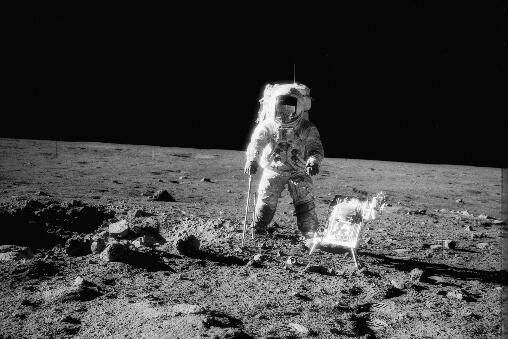
Itoi
So, humans have come so far as to include the Moon's orbit in Earth's environment.
Noguchi
Yes, in the sense that humans have actually travelled to that extent, we can indeed say that. Also, when you think about the tidal forces, the ebb and flow of tides are affected by the Moon's gravity. So, Earth and the Moon are closely related in many ways.
Itoi
Even if the Moon is designated as part of Earth's environment, we usually refer to this section as "space," which makes it sound extremely far away. The word "space," as we commonly use, may have a double meaning-a place where we can actually go to and a place of infinity, as I mentioned earlier.
Noguchi
When you look at cosmology throughout the ages and cultures, you can see that people in the past sparked their imagination to create their image of space. For example, legend had it that the world was a hemisphere supported by a big snake and a turtle with many elephants on top.
Romantic episodes of space, such as Pythagoras, an ancient Greek philosopher, coining the word "cosmos" and Aristotle writing a treatise titled On the Universe, are intellectually stimulating. In contrast, space in the modern world is often explained in the form of a cosmology-based timeline that begins with the Big Bang. There is a considerable gap between the former and the latter. The latest hard-core cosmology is all Greek even to me, so it's presumably not easy for the general public to understand. Dark matter in particular makes us feel totally ignorant about space. That's why we work hard to deliver high resolution or 4K footage of space and collect sand from an asteroid with HAYABUSA so that people can feel close to space and perceive its romantic aspects. Yet, it's a fact that people still think of space as something they can't understand. So, there is certainly a kind of ambivalence toward space.
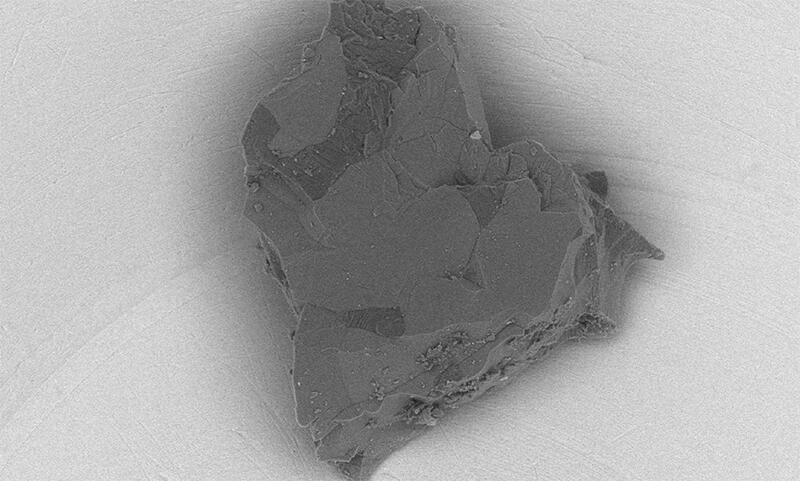
Itoi
When I hear news containing the word "space," I usually interpret it based on different senses of distance. But when I heard the news about sand brought back from a star, I felt that my notion of space as an extremely faraway place merged with my idea of space located close to Earth, near the area where gravity exists. That's why I felt exhilarated about the successful operation of HAYABUSA.
Noguchi
I think the key factor is whether you can feel that space falls within the scope of your understanding, within your reach. When you hear about sand of a star taken back by HAYABUSA or the capsule that returned to Earth, you feel familiar with space. The story about a capsule returning to Earth after traveling six billion kilometers is highly appealing because it involves tangible experience in space. At the same time, there is a side of me that only believes what I've experienced myself. This goes for space too. For me, space is a place where I've traveled to, touched, and listened to in person, a place I've felt with my own five senses. Maybe it's because of this belief that I can relate to the sensitivity of artists despite being a hard-core scientist.
Traveling "vertically" to the Moon
Itoi
When I think about the two kinds of space-the faraway space and the reachable space-I can now understand why private trips to the Moon is becoming a reality.
Noguchi
Speaking of the Moon, when the Apollo Program was executed, the general public's frank impression must have been something like, "I don't know exactly where they've been to, but they seem to have traveled to an amazing place." Particularly because it was during the Cold War, people must have been astonished by the notion that rockets can unknowingly fly above them. To compete with the Soviet Union's spaceflight by Gagarin, US President John F. Kennedy drew up the grand Apollo Program, which was to plant a US flag on the Moon for the whole world to see.
As you know, the result was a success. However, no tangible accomplishments have been made since then, in the sense that the ensuing achievements have been a far cry from what can be understood as amazing by everyone. There are numerous planet explorers flying out there, but they have rarely returned to us and helped us put space in perspective, as HAYABUSA and HAYABUSA2 did.
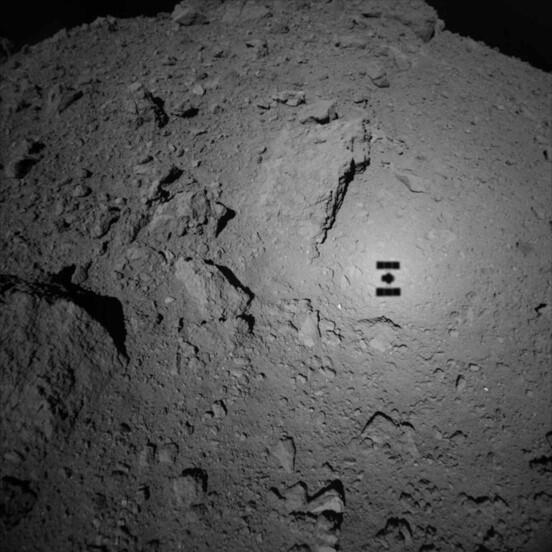
September 21, 2018, around 13:02 (JST) ©JAXA
Itoi
In that sense, the Apollo Program was indeed a well-made "product."
Noguchi
Last year marked the 50th Anniversary of the first Moon landing. So, there were a host of lecture meetings on the Apollo Program in Houston where I'm now staying. I got to hear stories from engineers who had supported the program in their 20s, and interacted with astronauts who had walked on the Moon. Even though America was indeed a strong nation, I was still impressed with how everyone involved completely believed in the success of the program and their spirit of not fearing failure. I was stunned by their courage to have walked on such a tightrope, even more than by the fact that they reached the Moon. I don't know if President Kennedy actually said, "We are going to the Moon however difficult it is," but it's awesome how the Americans set an ambitious goal that could only just be achieved by leveraging all the technologies available at the time, pushing humankind to the limit. This, of course, goes for Gagarin too. I believe the Soviet leader at the time set his eyes on space to demonstrate the superiority of communism and spurred their engineers on towards success. In a sense, for the leader to set up a challenging plan and to get the engineers involved may be a typical pattern of success.
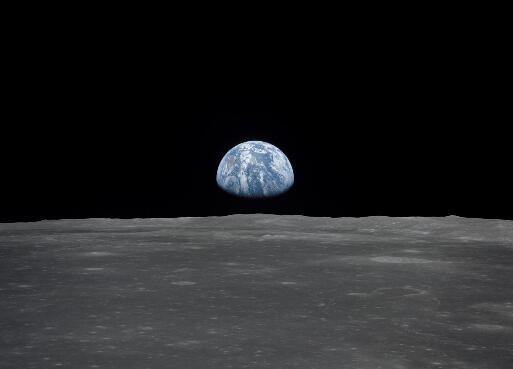
Itoi
When you imagine a rocket flying, you picture two kinds of rockets: A rocket that blasts off vertically into space and a rocket that flies around Earth's orbit, parallel to the ground. But I think people prefer to think of space as being vertically reachable. When hearing the news about landing on the Moon, people must have imagined a vertical trip from the earth.
Noguchi
Yes, I see what you mean about rockets flying on vertical and parallel paths in terms of sensation.
Itoi
Yes, in terms of how you feel.
Noguchi
I totally understand. I've watched rockets being launched many times, but the most moving experience was not the launch of the space shuttle I rode, but that of Soyuz which my friend was on. On a vast empty plain was the launch pad, and following a countdown-three, two, one, bang!-the rocket blasted off vertically from the horizon into the sky. As I watched the rocket leaving Earth at a right angle, I was utterly astounded by what human beings were capable of achieving. Do you conceive space as where the Moon floats, straight above the tip of a pole set in the ground, isn't it?
Itoi
Exactly.
Noguchi
In reality, when traveling to the Moon, rockets are first launched into the orbit of Earth, and then it accelerates up toward the Moon as if flung up. But I do think that the sense of awe toward objects shooting up perpendicularly from the ground is definitely ingrained in human being's genes.
Itoi
That's why many people were awed by rockets heading toward the Moon, an icon of space. If a Mars program had taken off after the Apollo Program, I may have become more of a "space boy."
Serious endeavor to explore Mars
Noguchi
A company called SpaceX, which is developing the rocket I will be riding on, is advancing in the direction of your idea.
Itoi
So I hear.
Noguchi
The Crew Dragon spacecraft that I will be riding on is designed in the shape of a pencil. It stands upright and at the tip is the capsule. SpaceX is seriously endeavoring to explore Mars, and has set forth the corporate goal of developing a rocket for traveling to Mars after the Moon. SpaceX may be the one that has righteously taken over the dreams held by children of the 1960s, including you.
Itoi
According to the news, it seems likely that SpaceX will make us feel closer to space, doesn't it?
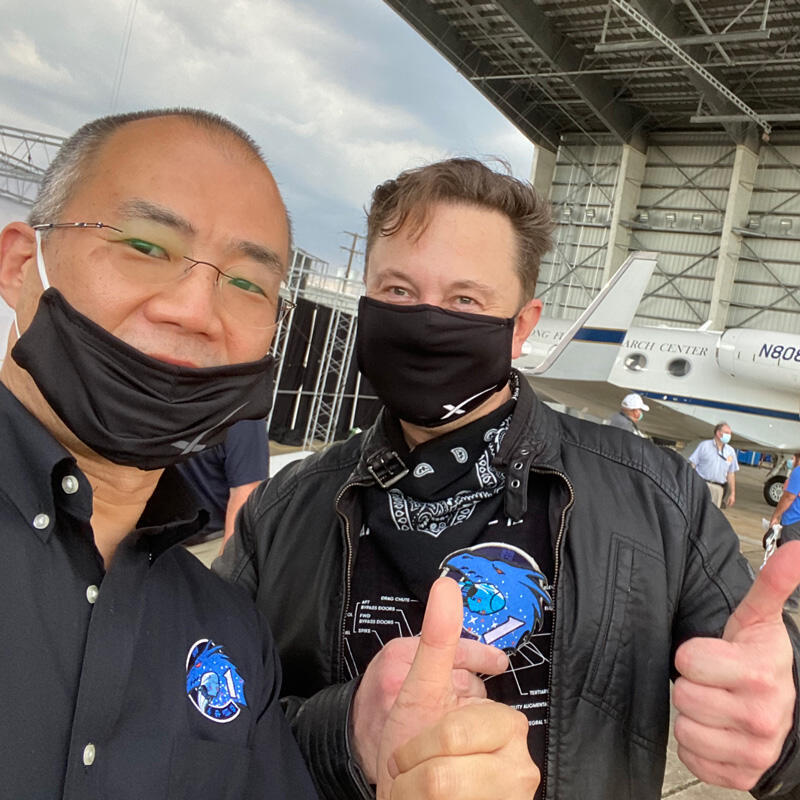
Noguchi
In addition to exploring Mars, SpaceX is also aiming to enable a broader array of people to go to space. Under the Apollo Program, only 12 people landed on the Moon, but SpaceX intends to increase this number to around 100 or even 1,000. Before anything, costs need to be reduced to achieve this. The key is to make the rockets reusable, as with space shuttles. Rockets that return to Earth will be reused for regular scheduled flights. The destination of these flights will be Earth's orbit, not space faraway, but I hope that they will allow more people to experience space.
Becoming a star yourself
Itoi
You were engaged in extravehicular activities (EVA) right from your first flight, weren't you? Maybe your personal attributes were fit for the job. How is EVA different from training? Could you tell me how you felt, assuming you were a tour guide?
Noguchi
Well, I felt that EVA was a dream job for an astronaut partly because no Japanese astronauts had ever engaged in EVA when I had become an astronaut. In short, sitting in a spacecraft and being lifted vertically in the intense vibration is in itself an exciting experience, but you are essentially only riding a vehicle, whereas when you open the hatch and go out into space, you become a vehicle yourself, a star.
Itoi
I see, you feel as if you've become a star.
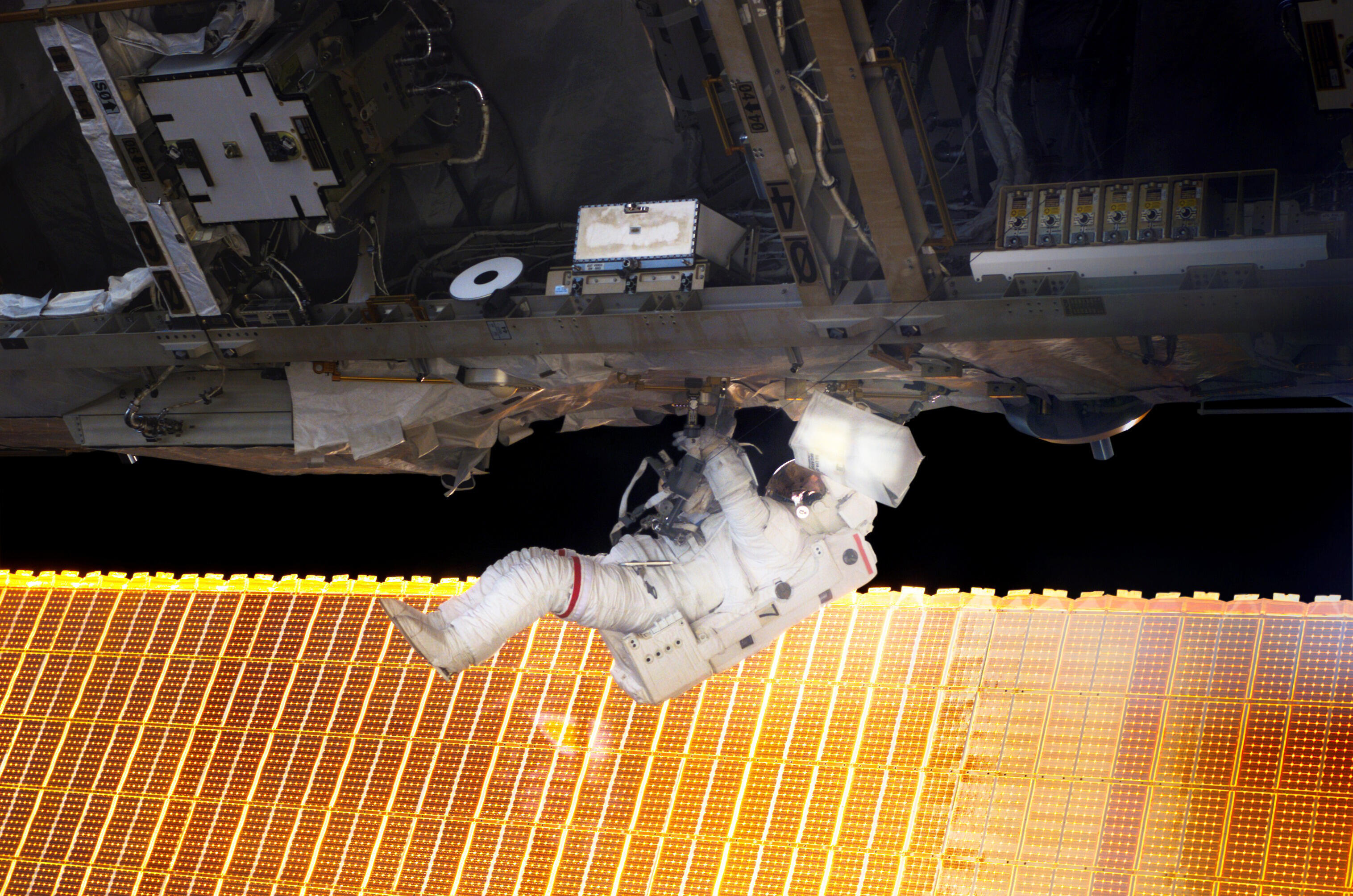
Noguchi
The moment you drift out into space on your own, you become an object that goes around Earth pulled by gravity. Of course, you are anchored to the spacecraft by a lifeline, but you feel yourself floating and flying around Earth, just like the Moon. When you move your arms and legs, you feel directly in contact with space through your spacesuit. This is the powerful part of this hands-on experience. The other element is the sense of reality you feel. Your field of view is very broad when you look directly through your spacesuit. The world of complete death and the world where life is on the line are separated only by the extremely thin glass of your three-layered helmet. This sense of reality probably makes me vividly feel that I've become a star.
Itoi
When you ride a car, you feel its speed, don't you? How do you feel speed in space?
Noguchi
Actually, you don't feel speed so much, even though you are flying around Earth at eight kilometers per second while engaged in EVA.
Itoi
Eight kilometers per second sounds awesome.
Noguchi
One of the reasons why you don't feel speed is because there is no air at all outside the spacecraft. So when you step outside the hatch, it's complete silence. Space is a world of no sound, a cold and bleak landscape. When setting your foot into this world all alone-although, in fact, you stretch your hands out instead of your legs because it's zero gravity, but you do feel as if you are setting your "foot" into space-you feel that the spacecraft is a place filled with life. It has all the resources brought from Earth-oxygen, temperature, and water. The spacecraft seems like a "miniature Earth." Even if you are connected to the craft with a lifeline, you feel incredibly lonely when you close the door behind you and leave the craft.
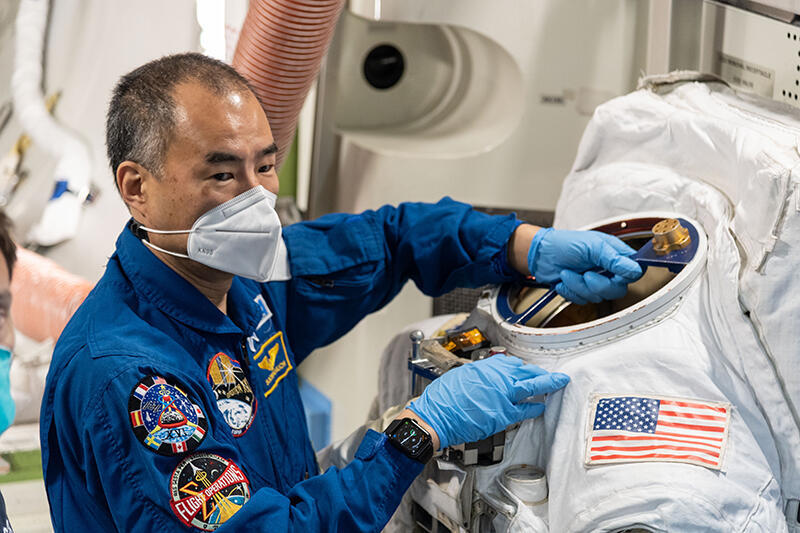
Itoi
Was this the first time you had felt this way?
Noguchi
I had been engaged in hundreds of hours of EVA training on ground, of course, so the operational steps were deeply ingrained in me, so much so that I was able to go through the process even with my eyes closed. But space is a vacuum. You first enter the double-door airlock, which is a compartment located between the spacecraft and space, then close the door behind you, release air, and, when a complete vacuum is created, open the exit door to vacate the airlock. As the airlock becomes a vacuum, the spacesuit hardens.
Itoi
Wow, I didn't know that.
Noguchi
And also, my voice changes. Humans produce their voice by adjusting to the air pressure, so when the pressure is reduced, your voice changes rapidly, which makes you realize that you have come to a different world. The temperature is low, the air pressure is low, and although you do not feel this, space is also full of radiation, so it's clearly a dangerous place. You instinctively know that you shouldn't go beyond this point, and yet you open the door and step out. It's an ambivalent experience.
Itoi
So, even though you feel you shouldn't go out there, you know on an intellectual level that you will survive even if you do.
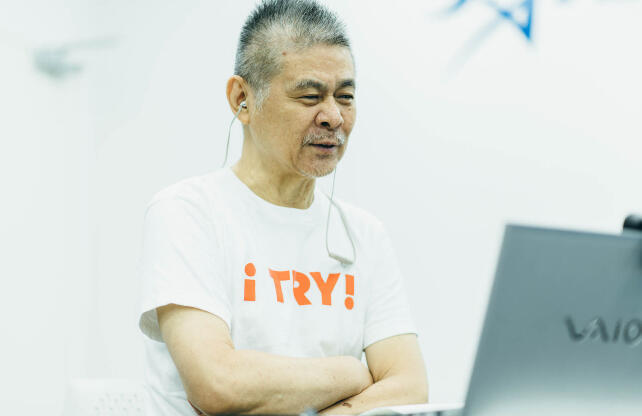
Noguchi
Exactly. You are just repeating what you've practiced dozens of times, and you can always use jet thrusters to come back to the craft if anything happens. Technologically, there are safety measures in place, so you know it's safe on an intellectual level. Even so, when you open the door and go out into space, it feels like entering the "danger zone," as in Top Gun, the movie. The feeling of entering the world of death is indeed intense, and at the same time, very impressive and unforgettable.
Cultivating both space and ground
Itoi
I asked you if you had ever experienced a similar sensation before. This was because what you said sounded poetic for one reason, and for another, I'd thought for a moment that the experience resembled that of a baby coming out of the womb.
Noguchi
I see
Itoi
In other words, a mother's womb can be likened to the sea. The fetus in the "sea" lives with complete trust in its environment, but when it grows big enough, it has to leave the womb and enter into a world full of danger. Fortunately for an astronaut, a spacesuit is like a womb. When astronauts step out into space, they are enveloped in a "womb" equipped with an oxygen tank and all, whereas babies come into this world undergoing an even more extraordinary adventure. They even have to change the way they breathe. I must say, humans are incredible adventurers, aren't they? Actually, this goes for all creatures. They go through a tremendous experience of jumping into this world of trust and adventure as they let out a cry.
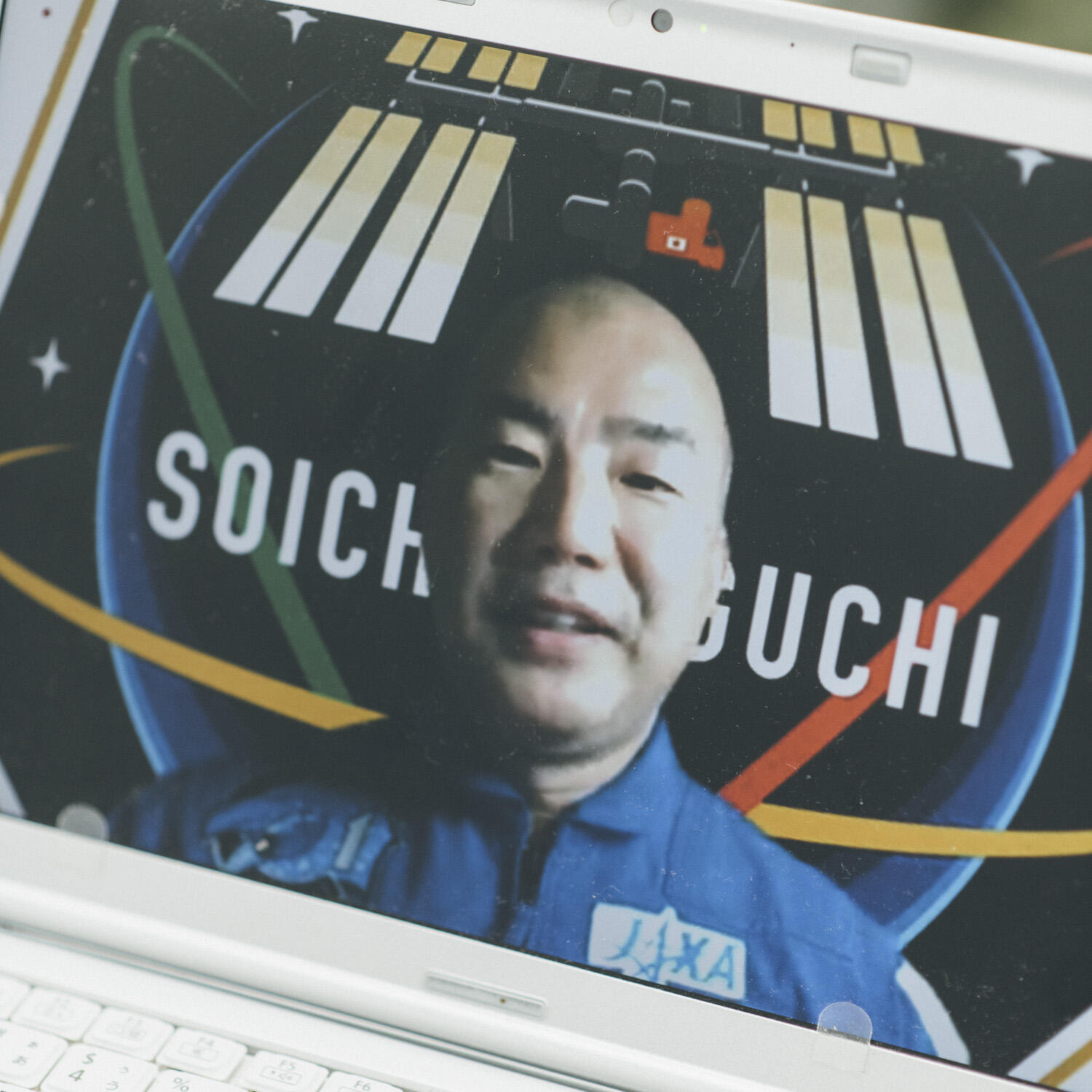
Noguchi
There is a science fiction movie entitled 2001: A Space Odyssey.
Itoi
Oh, yes! A fetus is featured in that movie too.
Noguchi
By using the "monolith" as a symbol, the movie embodies human evolution. The movie concludes with the "Star Child," which comes in the form of a fetus. In this sense, space explorations and adventures paving new ways can be perceived as humans pushing forward to open up new possibilities, just as a fetus pushes through the birth canal.
Itoi
That's probably why a thought flashed across my mind that your experience may have been commonly experienced by everyone at some point.
Noguchi
Our discussion has made me realize something. A fetus undergoes cell divisions in the womb, experiencing an evolution of life, and ultimately crawls out from the "sea" onto "land," the real world, going through an immense change in its surrounding environment. In this sense, EVA can be compared to a simulation of life, not death.
Itoi
I love surreal news about live human beings going on a space flight and returning to Earth. In today's society, we believe everything can be predicted, which is actually quite stifling for us. In this time when people are unpleasantly predetermined to play certain roles in certain places, astronauts have to survive by making decisions amid unpredictable circumstances, as I tangibly understood through your EVA experience. I felt that people living on Earth must also work hard to cultivate and expand their individual roles just as much as humanity endeavors to advance into the unknown world of space.
Noguchi
Yes, indeed.
Itoi
I had an inkling that society, at this rate, was heading toward a place where people consider it an ideal to be able to mutually say, "We don't need you," in the sense that all individuals become replaceable. But in space, as you told me, the more meticulous the preparation by individuals is, the higher the possibilities of success. This was really heartening. When humans receive training and aboard a spacecraft, they can travel farther and farther away, enhancing the potential of humankind. But I realized that we on Earth must retain and cultivate our own unique possibilities as individuals just as much as humanity expands its possibilities in space. These are what I had in mind while engaging in this inconvenient online communication (laughs). I am most grateful for having been given this opportunity.
Noguchi
Space is often thought to be difficult to comprehend, but, in fact, nothing has changed about space since the time of Aristoteles and Galileo Galilei. Ever since their time, humankind has been looking up at the sky and trying to figure it out. It would be wonderful if all kinds of people take on the challenge of understanding space with a relaxed approach of their own, instead of being constrained by rigid cosmology.
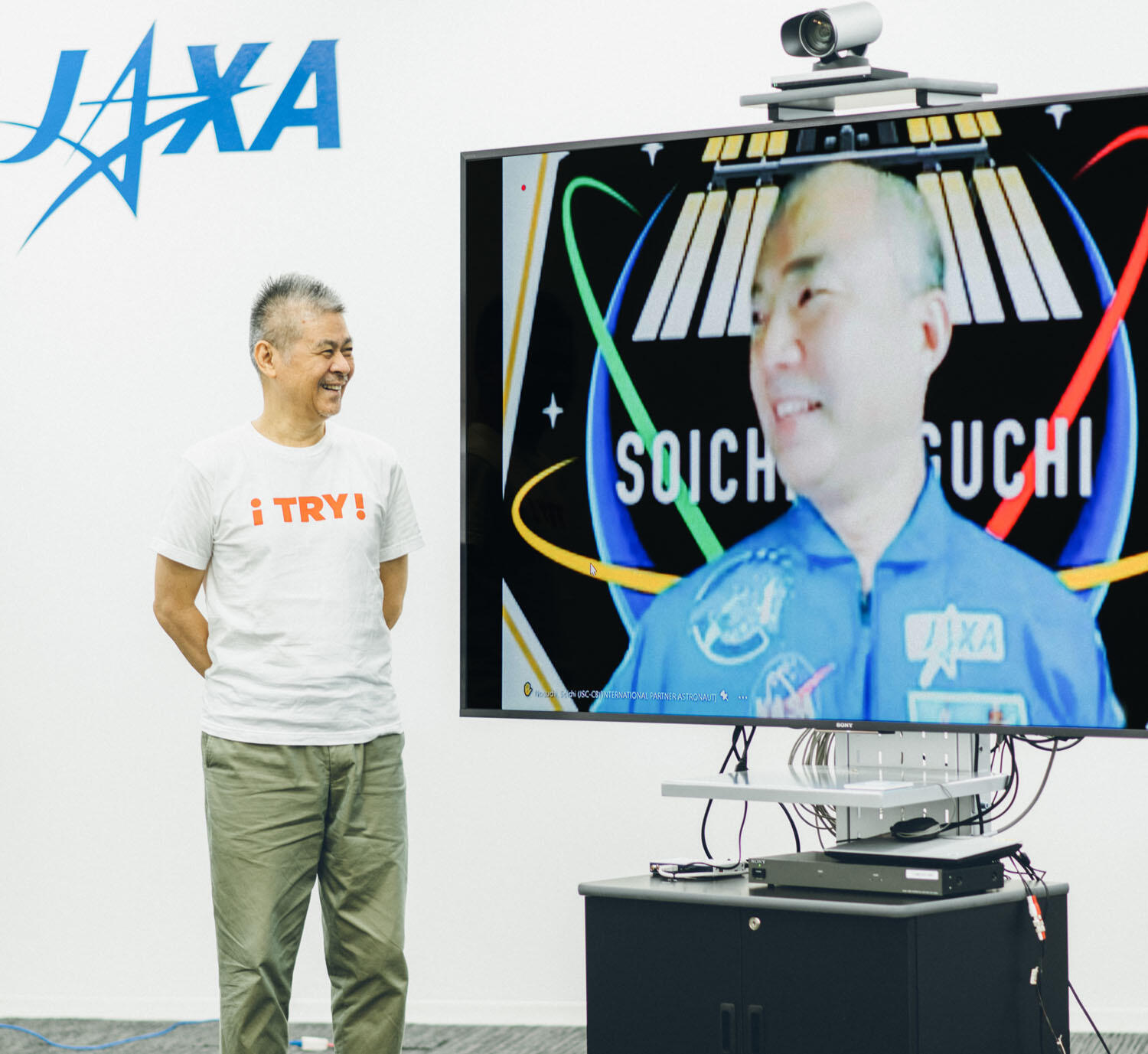
Profile
ITOI Shigesato
Copywriter; Head of Hobo Nichi
Born in Gunma Prefecture. Active as a copywriter, lyricist, writer, game designer, etc. Established the website "Hobo Nikkan Itoi Shimbun" in 1998. Author of Kanarazu Sukini Naru Doubutsu ("The animals you must love"), Ball No Yona Kotoba ("Toss around these words."), Shirotosurukoto ("Trying to get to know") (co-authored with HAYANO Ryugo), and many more. Has a Jack Russel Terrier named Buiko.
NOGUCHI Soichi, Ph.D.
Born in Kanagawa Prefecture. Boarded the space shuttle in 2005 and engaged in extravehicular activities (EVA) three times. In 2009, boarded Soyuz and stayed at the International Space Station (ISS) for approximately five and a half months. In 2020, scheduled to travel to space for the third time on the Crew Dragon, a spacecraft of a private company. His hobbies include survival skills and cooking. Author of Uchu ni Oideyo ("Come to space"), Uchu ni Ikukoto ha Chikyu wo Shirukoto ("Going to space means learning about Earth"; co-authored with YANO Akiko), and many more.
All the images are copyrighted ©JAXA unless otherwise noticed.
- Home>
- Global Activity>
- Public Relations>
- JAXA’s>
- JAXA's No.81>
- Special Talk: CATCH MY OWN UNIVERSE